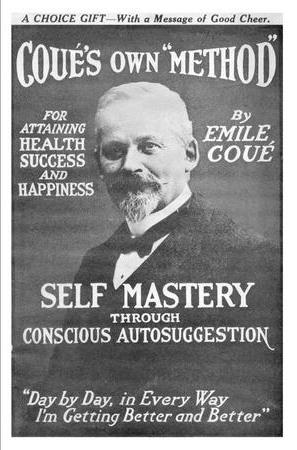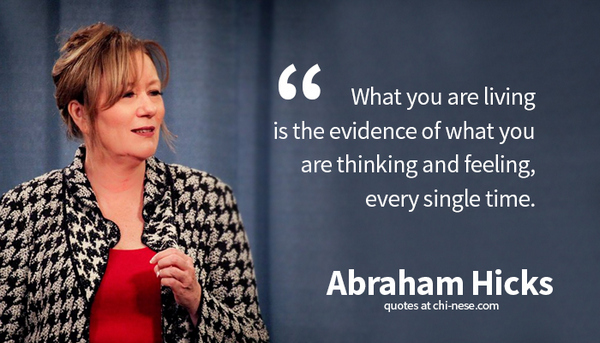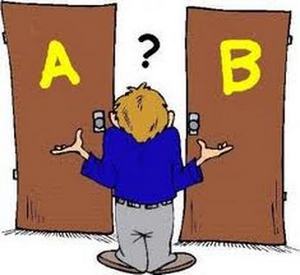Affirmations and Goal Setting – Get It Right!
 Affirmations have been a favourite way to get your thinking producing amazing results for a long time. When I first heard of them it was in reference to Emil Coué, the French psychologist. He introduced autosuggestion to his patients as a means of self improvement. He would have them repeat a mantra every day, several times a day, and it often brought about wonderful results. I still remember the simple, but no doubt very effective phrase he became famous for:
Affirmations have been a favourite way to get your thinking producing amazing results for a long time. When I first heard of them it was in reference to Emil Coué, the French psychologist. He introduced autosuggestion to his patients as a means of self improvement. He would have them repeat a mantra every day, several times a day, and it often brought about wonderful results. I still remember the simple, but no doubt very effective phrase he became famous for:
“Every day, in every way, I’m getting better and better.”
You’ve probably heard it too – it’s been repeated and referenced thousands of times.
And affirmations can undoubtedly bring about tremendous changes and improvements. But sometimes they’re not so effective. In fact, sometimes they just don’t hit the mark at all. And you’re left wondering where the hell you went wrong. And maybe even wondering why you bothered wasting your time with affirmations, which were supposed to be so effective, and yet proved to be totally over-rated.
If this rings a bell with you, let me just offer you a slightly different approach. One of the problems with affirmations is that they tend to be quite stern and unflinching. I mean, when you say to yourself “I will be more confident from now on”, that doesn’t leave much wiggle room, does it? You certainly want that to be the truth, but the fact is it usually goes against the grain. You want to be more confident, sure, so you say that … but the fact that you lack confidence means you probably don’t believe those very positive words. So you’re trying to force yourself to be more confident! Not gonna work, is it!
A subtle change of wording
Don’t despair – you can still pursue this dream, but with a subtle difference in the wording of your affirmation. Instead of saying (or thinking) “I will be more confident from now on”, try this: “Wouldn’t it be nice if I were more confident from now on”. As soon as you say that, it makes you smile! You can’t help it – there’s just something about that wording. It’s almost bursting with possibilities!
It’s just a few words changed, but it takes the ‘heaviness’ out of the affirmation. For many people it can be almost impossible to believe, at a deep level, that they can actually affect the outcome just by declaring that they will do something. Their mindset is such that this idea is just not acceptable. So, saying it is a great idea … but if your mind rejects the idea, it’s not really going anywhere.

A much more acceptable form of words is wouldn’t it be nice if … [whatever you want] actually happened. This is what Abraham suggests (Abraham is the name for Esther Hicks’ guides). Abraham advises the softly-softly approach; teasing out the desired result, rather than heavy-handedly declaring it to be so.
Softly, softly …
Your subconscious won’t have a problem with this. It will see it as perfectly acceptable. Instead of a bold declaration, it’s not much more than a gentle suggestion, and it will accept it as totally believable. You can apply this to all your affirmations, if it seems to make sense to you. Just change the strident “I will —“ wording to a less abrasive “Wouldn’t it be nice if —“ format. You might be surprised how much more effective your affirmations are, and how much more fun!
More effective goal setting
Just as with affirmations, the way you approach goal setting is crucial. You might think you’re doing everything right, but you’re sad to see that your goals remain just that … goals. They never seem to materialise. They remain forever just out of reach.
And once again, a slight change can make a huge difference. It can be summed up in a few words:
Know precisely what you want … and don’t waver from it!
It seems obvious, and even simplistic. But the truth is, most of us are just hopeless at the basics! We think we know exactly what we want, but on closer inspection, we really don’t. We convince ourselves that we know what we want, and we pursue that dream, at least superficially … but we make the same mistake over and over again …
Here’s what happens:
 We decide we want this thing, let’s call it Option A. We want Option A so badly it almost hurts, and we think about it all the time. If we only had Option A life would be so much better. And, y’know, in so many ways! If Option A appeared in our life, we’d be so happy, and every day would be like a magical summer’s day from a perfect childhood, almost like a dream come true.
We decide we want this thing, let’s call it Option A. We want Option A so badly it almost hurts, and we think about it all the time. If we only had Option A life would be so much better. And, y’know, in so many ways! If Option A appeared in our life, we’d be so happy, and every day would be like a magical summer’s day from a perfect childhood, almost like a dream come true.
So we set our heart on Option A! We might even write it down (good move, by the way!). We focus on it every chance we get. And the Universe gets the message. The Universe does all the backroom work, rearranging things in such a way that the most seemingly unlikely coincidences occur and things start gradually shifting in our favour.
We go off on a tangent!
Meanwhile, we get sidetracked! We get seduced by Option B! If only we had Option B in our life, wow … things would be fantastic! It would be like winning the lottery twice a week! It would be so good it would feel like first love and the wildest romance imaginable, all entwined. And it would put everything else in the shade. Almost without noticing, we start to focus more on Option B than Option A. Oh, we still go through the motions of visualising Option A, but secretly, we’re hankering after Option B! Not a good idea! No, not at all.
The Universe is confused now (if such a thing is even imaginable) – it wants to present you with what you want, but … hold on, is that Option A … or could it be Option B? You really wanted Option A, and the wheels were set in motion to deliver that desired option … but hold on … now you seem to want Option B! Huh?
Mmmm … the Universe finds itself in a quandary now. How can it deliver both your first request, Option A, and your second one, Option B, which might even be incompatible with the first one?

This is like ordering an item from a catalogue and two days after placing the order you send them an email saying, Hey, can you cancel that thing I ordered, I want this other thing now. And a few days later, you email them again, with another request, and it’s another change of order. The sales dept at the catalogue will be parcelling up your order and having it ready for the mail, maybe even in the mail, and they have to change things entirely to try to keep up with your requests. Again and again!
After about the fourth change of order, the person dealing with your emails and phone calls is wondering whether to blacklist you! Did you think you’d become customer of the month with that kind of behaviour? Hell, no! You’d be doing well if they even carried on taking your calls, let alone your orders!
You’re confusing the Universe!
When you keep changing your order with the Universe, you’re doing the same thing. You’re confusing the issue! As amazing as the system is, even the Universe has its limitations. It simply can’t deliver an order when you keep changing it. Changing horses mid-stream is never a good idea. Once you set your mind on something, stick with it! Assume the Universe is doing the necessary to bring you what you wanted … and leave it at that. Show some faith!
 Look, the reason you’re doing this is because you believe in a benevolent Universe, and you believe it’s working in your favour. You believe it is bountiful and generous, and wants to help you. So be patient! It’s not going to happen overnight. Almost 100% of the time, it will take a while. Things only happen with magical speed in fairy tales. So just accept that. Stick with what you’ve ordered, and accept that it’s on its way to you.
Look, the reason you’re doing this is because you believe in a benevolent Universe, and you believe it’s working in your favour. You believe it is bountiful and generous, and wants to help you. So be patient! It’s not going to happen overnight. Almost 100% of the time, it will take a while. Things only happen with magical speed in fairy tales. So just accept that. Stick with what you’ve ordered, and accept that it’s on its way to you.
To change your order, or just give up on the whole thing, either way it betrays a distinct lack of faith. What you’re doing is co-creating. Together with the Universe, you are engaged in a process of manifestation. That’s a serious business! And you want to change things halfway? Uh-uh! Bad move!
Stick with your stated desire, and assume the Universe is working on your behalf.
Anything else is an insult to the Creator,
whoever or whatever you conceive that to be.
